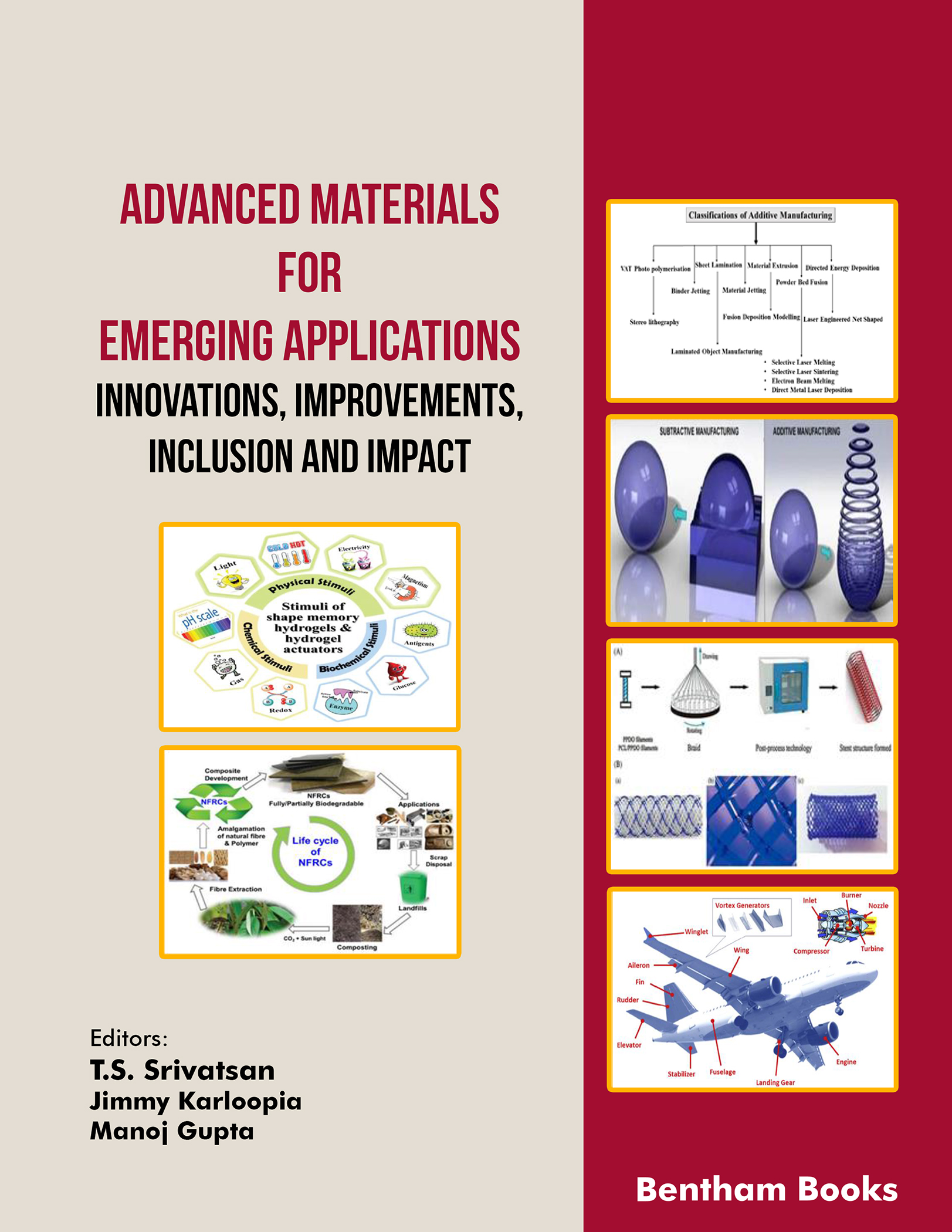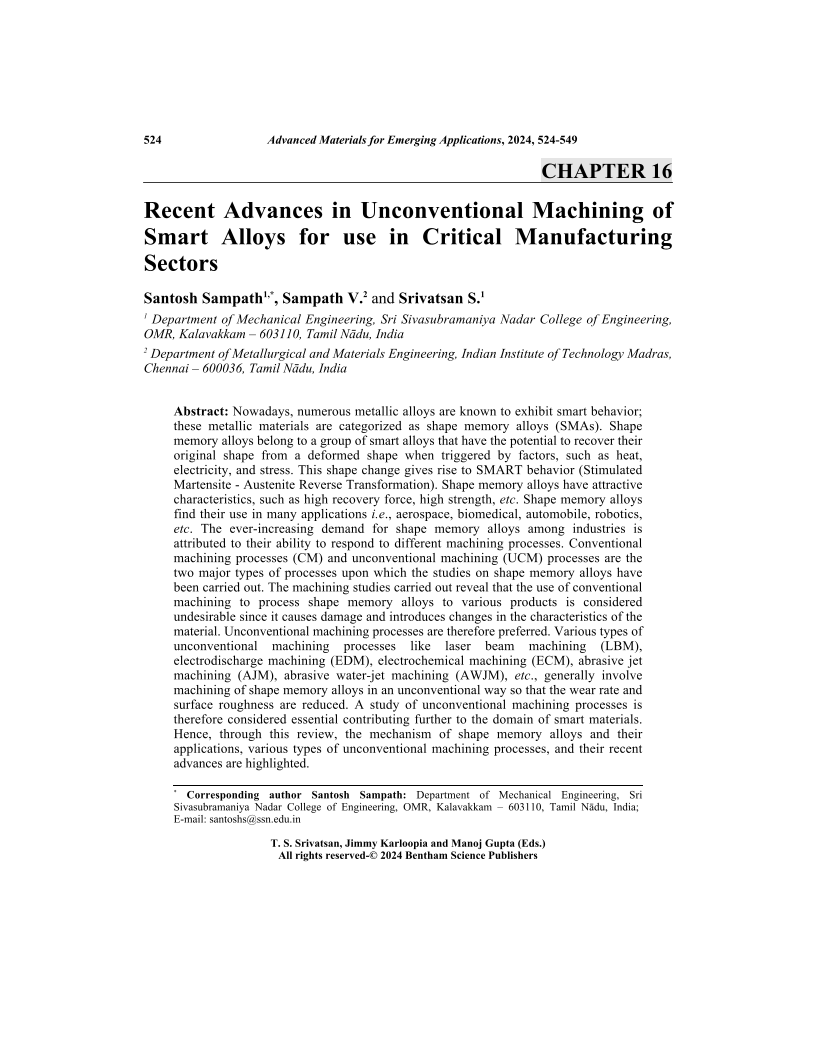Recent Advances in Unconventional Machining of Smart Alloys for use in Critical Manufacturing Sectors

- Authors: Santosh Sampath1, Sampath V.2, Srivatsan S.3
-
View Affiliations Hide Affiliations1 Department of Mechanical Engineering, Sri Sivasubramaniya Nadar College of Engineering, OMR, Kalavakkam 603110, Tamil Ndu, India 2 Department of Metallurgical and Materials Engineering, Indian Institute of Technology Madras, Chennai 600036, Tamil Ndu, India 3 Department of Mechanical Engineering, Sri Sivasubramaniya Nadar College of Engineering, OMR, Kalavakkam 603110, Tamil Ndu, India
- Source: Advanced Materials for Emerging Applications (Innovations, Improvements, Inclusion and Impact) , pp 524-549
- Publication Date: May 2024
- Language: English
Recent Advances in Unconventional Machining of Smart Alloys for use in Critical Manufacturing Sectors, Page 1 of 1
< Previous page | Next page > /docserver/preview/fulltext/9789815196771/chapter-16-1.gif
Nowadays, numerous metallic alloys are known to exhibit smart behavior; these metallic materials are categorized as shape memory alloys (SMAs). Shape memory alloys belong to a group of smart alloys that have the potential to recover their original shape from a deformed shape when triggered by factors, such as heat, electricity, and stress. This shape change gives rise to SMART behavior (Stimulated Martensite - Austenite Reverse Transformation). Shape memory alloys have attractive characteristics, such as high recovery force, high strength, etc. Shape memory alloys find their use in many applications i.e., aerospace, biomedical, automobile, robotics, etc. The ever-increasing demand for shape memory alloys among industries is attributed to their ability to respond to different machining processes. Conventional machining processes (CM) and unconventional machining (UCM) processes are the two major types of processes upon which the studies on shape memory alloys have been carried out. The machining studies carried out reveal that the use of conventional machining to process shape memory alloys to various products is considered undesirable since it causes damage and introduces changes in the characteristics of the material. Unconventional machining processes are therefore preferred. Various types of unconventional machining processes like laser beam machining (LBM), electrodischarge machining (EDM), electrochemical machining (ECM), abrasive jet machining (AJM), abrasive water-jet machining (AWJM), etc., generally involve machining of shape memory alloys in an unconventional way so that the wear rate and surface roughness are reduced. A study of unconventional machining processes is therefore considered essential contributing further to the domain of smart materials. Hence, through this review, the mechanism of shape memory alloys and their applications, various types of unconventional machining processes, and their recent advances are highlighted.
-
From This Site
/content/books/9789815196771.chapter-16dcterms_subject,pub_keyword-contentType:Journal -contentType:Figure -contentType:Table -contentType:SupplementaryData105

